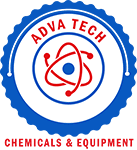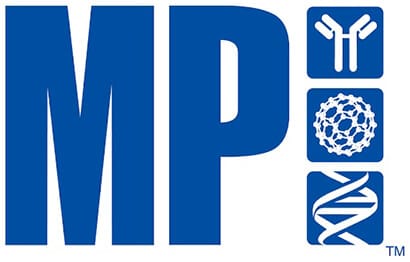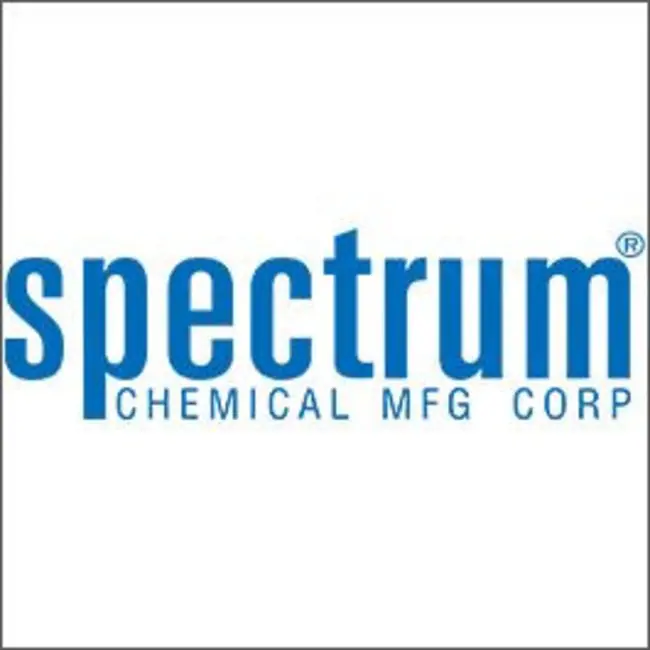10mg
Showing 101–150 of 170 results
-
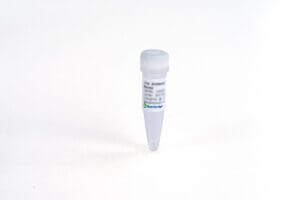
MonoRabᵀᴹ PD-L1 (1H3), mAb, Rabbit
$13,748.25 Add to cart View Product DetailsIt is type I transmembrane glycoprotein that belongs to the B7 family. PD-L1 is expressed on T cells, B cells, NK cells, dendritic cells, IFN-γ activated endothelial cells, and monocytes. It plays a role in regulating T cell responses. The interaction of PD-L1 with PD-1 inhibits T cell proliferation and cytokine production.
-

MonoRabᵀᴹ PD-L1 (2B3), mAb, Rabbit
$13,748.25 Add to cart View Product DetailsIt is type I transmembrane glycoprotein that belongs to the B7 family. PD-L1 is expressed on T cells, B cells, NK cells, dendritic cells, IFN-γ activated endothelial cells, and monocytes. It plays a role in regulating T cell responses. The interaction of PD-L1 with PD-1 inhibits T cell proliferation and cytokine production.
-

Myoglobin (15C2), mAb, Mouse
$1,078.13 Add to cart View Product DetailsMyoglobin (symbol Mb or MB) is an iron-and oxygen-binding protein. Its level in blood increases above normal levels at the beginning of myocardial necrosis associated with myocardial infarction (MI). It is used as a diagnosis marker for skeletal or myocardial muscle injury.
-

Myoglobin (16D3), mAb, Mouse
$1,078.13 Add to cart View Product DetailsMyoglobin (symbol Mb or MB) is an iron-and oxygen-binding protein. Its level in blood increases above normal levels at the beginning of myocardial necrosis associated with myocardial infarction (MI). It is used as a diagnosis marker for skeletal or myocardial muscle injury.
-

Myoglobin (M8A), mAb, Mouse
$1,078.13 Add to cart View Product DetailsMyoglobin (symbol Mb or MB) is an iron-and oxygen-binding protein. Its level in blood increases above normal levels at the beginning of myocardial necrosis associated with myocardial infarction (MI). It is used as a diagnosis marker for skeletal or myocardial muscle injury.
-

Myoglobin (M8D), mAb, Mouse
$1,078.13 Add to cart View Product DetailsMyoglobin (symbol Mb or MB) is an iron-and oxygen-binding protein. Its level in blood increases above normal levels at the beginning of myocardial necrosis associated with myocardial infarction (MI). It is used as a diagnosis marker for skeletal or myocardial muscle injury.
-

NGAL (4C10A7), mAb, Mouse
$1,017.75 Add to cart View Product DetailsNGAL (Neutrophil gelatinase-associated lipocalin, also known as lipocalin-2) is a small protein found in renal tubules. And its expression is dramatically increased in ischemic or nephrotoxic injury. It has been implicated in a variety of processes including cell differentiation, proliferation, survival and morphogenesis. NGAL is expressed in variety of tumor types including breast, ovary and pancreatic carcinomas.
-

NGAL (5A9D12), mAb, Mouse
$1,017.75 Add to cart View Product DetailsNGAL (Neutrophil gelatinase-associated lipocalin, also known as lipocalin-2) is a small protein found in renal tubules. And its expression is dramatically increased in ischemic or nephrotoxic injury. It has been implicated in a variety of processes including cell differentiation, proliferation, survival and morphogenesis. NGAL is expressed in variety of tumor types including breast, ovary and pancreatic carcinomas.
-

NSE (19A1), mAb, Mouse
$2,044.13 Add to cart View Product DetailsNeuron-Specific
Enolase (NSE) is recognized as a biomarker for small cell lung cancer. It is
secreted from neuroendocrine cells as well as neurogenic tumors. Its levels in
NSE-secreting neoplasms correlate with tumor mass and tumor metabolic activity. -

NSE (19E2), mAb, Mouse
$2,044.13 Add to cart View Product DetailsNeuron-Specific Enolase (NSE) is recognized as a biomarker for small cell lung cancer. It is secreted from neuroendocrine cells as well as neurogenic tumors. Its levels in NSE-secreting neoplasms correlate with tumor mass and tumor metabolic activity.
-

NT-proBNP (3B42HC)
$1,966.50 Add to cart View Product DetailsBNP and NT-proBNP are separated from precursor molecule proBNP via proteolytic processing. The BNP and NT-proBNP level in blood are proportional to the severity of cardiac dysfunction. They can be used for diagnosis of congestive heart failure (CHF).
-

p-Tau181 Antibody(A2F), mAb, Mouse
$3,803.63 Add to cart View Product DetailsMicrotubule associated protein tau is a neuronal microtubule-associated protein found predominantly in brain. Abnormal phosphorylation of tau is involved in the pathogenesis of Alzheimer’s disease (AD). The tau protein phosphorylated at threonine 181 (p-tau181) is a promising diagnostic biomarker for AD.
-

PAPP-A (19D1), mAb, Mouse
$1,164.38 Add to cart View Product DetailsPregnancy-associated plasma protein A (PAPP-A) is a high molecular weight protein. htPAPP-A is a protein complex which comprises of two PAPP-A subunits and two proform of eosinophil major basic protein. It exists in the blood of pregnant woman. dPAPP-A is a htPAPP-A dimmer which is composed of two PAPP-A subunits. htPAPP-A serves as a useful marker for the diagnosis of Down syndrome (DS).
-

PAPP-A (1AC2), mAb, Mouse
$1,164.38 Add to cart View Product DetailsPregnancy-associated plasma protein A (PAPP-A) is a high molecular weight protein. htPAPP-A is a protein complex which comprises of two PAPP-A subunits and two proform of eosinophil major basic protein. It exists in the blood of pregnant woman. dPAPP-A is a htPAPP-A dimmer which is composed of two PAPP-A subunits. htPAPP-A serves as a useful marker for the diagnosis of Down syndrome (DS).
-

PCT (16A1), mAb, Mouse
$1,311.00 Add to cart View Product DetailsPCT, a 116 amino acid (aa) protein, is comprised of three sections including a 57 aa N-terminal PCT, a 32 aa calcitonin and a 21 aa katacalcin. Calcitonin is a hormone, derived from PCT cleavage. PCT is a good diagnosis marker for bacterial infection. Other diseases such as sepsis, inflammation, surgery, heat shock, burn injuries and cardiogenic shock can also cause an increase of PCT level in blood.
-

PCT (18D2), mAb, Mouse
$1,311.00 Add to cart View Product DetailsPCT, a 116 amino acid (aa) protein, is comprised of three sections including a 57 aa N-terminal PCT, a 32 aa calcitonin and a 21 aa katacalcin. Calcitonin is a hormone, derived from PCT cleavage. PCT is a good diagnosis marker for bacterial infection. Other diseases such as sepsis, inflammation, surgery, heat shock, burn injuries and cardiogenic shock can also cause an increase of PCT level in blood.
-

PCT (18M3), mAb, Mouse
$1,311.00 Add to cart View Product DetailsPCT, a 116 amino acid (aa) protein, is comprised of three sections including a 57 aa N-terminal PCT, a 32 aa calcitonin and a 21 aa katacalcin. Calcitonin is a hormone, derived from PCT cleavage. PCT is a good diagnosis marker for bacterial infection. Other diseases such as sepsis, inflammation, surgery, heat shock, burn injuries and cardiogenic shock can also cause an increase of PCT level in blood.
-

PCT (PE21), mAb, Mouse
$1,311.00 Add to cart View Product DetailsPCT, a 116 amino acid (aa) protein, is comprised of three sections including a 57 aa N-terminal PCT, a 32 aa calcitonin and a 21 aa katacalcin. Calcitonin is a hormone, derived from PCT cleavage. PCT is a good diagnosis marker for bacterial infection. Other diseases such as sepsis, inflammation, surgery, heat shock, burn injuries and cardiogenic shock can also cause an increase of PCT level in blood.
-

PD-1 (2E5), mAb, Mouse
$13,066.88 Add to cart View Product DetailsProgrammed Cell Death Protein 1 (PD-1), is cell surface receptor expressing on T cells and pro-B cells. The binding of PD-1 to its two ligands, PD-L1 and PD-L2, could result in down-regulation of the immune system by inhibiting the T-cell activation process. Thus, PD-1 is an important immune checkpoint and a popular target for therapeutic antibodies against many cancers.
-

Pepsinogen II Antibody (1H9), mAb, Mouse
$1,276.50 Add to cart View Product DetailsPepsinogen are aspartic proteinases, which are classified into two groups: pepsinogen I (PGI) and pepsinogen II (PGII). PGI and PGII are mainly secreted by gastric chief cells. PGI and PGII are of useful aid in diagnosing severe atrophic gastritis and stomach cancer.
-

Pepsinogen II Antibody (5D5), mAb, Mouse
$1,276.50 Add to cart View Product DetailsPepsinogen are aspartic proteinases, which are classified into two groups: pepsinogen I (PGI) and pepsinogen II (PGII). PGI and PGII are mainly secreted by gastric chief cells. PGI and PGII are of useful aid in diagnosing severe atrophic gastritis and stomach cancer.
-

Pepsinogen II Antibody (61C4), mAb, Mouse
$1,276.50 Add to cart View Product DetailsPepsinogen are aspartic proteinases, which are classified into two groups: pepsinogen I (PGI) and pepsinogen II (PGII). PGI and PGII are mainly secreted by gastric chief cells. PGI and PGII are of useful aid in diagnosing severe atrophic gastritis and stomach cancer.
-

Pepsinogen II Antibody (7E8), mAb, Mouse
$1,276.50 Add to cart View Product DetailsPepsinogen are aspartic proteinases, which are classified into two groups: pepsinogen I (PGI) and pepsinogen II (PGII). PGI and PGII are mainly secreted by gastric chief cells. PGI and PGII are of useful aid in diagnosing severe atrophic gastritis and stomach cancer.
-
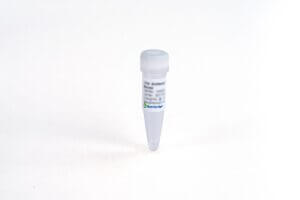
Pepsinogen II Antibody (7G1), mAb, Mouse
$1,302.38 Add to cart View Product DetailsPepsinogen are aspartic proteinases, which are classified into two groups: pepsinogen I (PGI) and pepsinogen II (PGII). PGI and PGII are mainly secreted by gastric chief cells. PGI and PGII are of useful aid in diagnosing severe atrophic gastritis and stomach cancer.
-
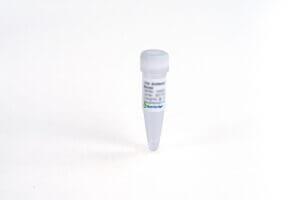
Pepsinogen II Antibody (8F5), mAb, Mouse
$1,302.38 Add to cart View Product DetailsPepsinogen are aspartic proteinases, which are classified into two groups: pepsinogen I (PGI) and pepsinogen II (PGII). PGI and PGII are mainly secreted by gastric chief cells. PGI and PGII are of useful aid in diagnosing severe atrophic gastritis and stomach cancer.
-

PGI (1H5), mAb, Mouse
$1,276.50 Add to cart View Product DetailsPepsinogens, aspartic proteinases, are classified into two groups, pepsinogen I (PGI) and pepsinogen II (PGII). PGI and PGII are mainly secreted by gastric chief cells. They are useful in diagnosing severe atrophic gastritis and stomach cancer.
-

PGI (5F2), mAb, Mouse
$1,276.50 Add to cart View Product DetailsPepsinogens, aspartic proteinases, are classified into two groups, pepsinogen I (PGI) and pepsinogen II (PGII). PGI and PGII are mainly secreted by gastric chief cells. They are useful in diagnosing severe atrophic gastritis and stomach cancer.
-

PGI (8C4), mAb, Mouse
$1,276.50 Add to cart View Product DetailsPepsinogens, aspartic proteinases, are classified into two groups, pepsinogen I (PGI) and pepsinogen II (PGII). PGI and PGII are mainly secreted by gastric chief cells. They are useful in diagnosing severe atrophic gastritis and stomach cancer.
-

PIVKA II (1C5), mAb, Mouse
$3,924.38 Add to cart View Product DetailsProtein Induced by Vitamin K Absence or Antagonist-II (PIVKA-II), also known as Des-γ-carboxy-prothrombin (DCP), is an abnormal form of prothrombin. Normally, the prothrombin’s 10 glutamic acid residues (Glu) in the γ-carboxyglutamic acid (Gla) domain at positions 6, 7, 14, 16, 19, 20,25, 26, 29 and 32 are γ-carboxylated to Gla by vitamin-K dependent γ- glutamyl carboxylase in the liver and then secreted into plasma. In patients with hepatocellular carcinoma (HCC), γ-carboxylation of prothrombin is impaired so that PIVKA-II is formed instead of prothrombin. PIVKA-II is considered as is an efficient biomarker specific for HCC.
-

PIVKA II (2D7), mAb, Mouse
$3,924.38 Add to cart View Product DetailsProtein Induced by Vitamin K Absence or Antagonist-II (PIVKA-II), also known as Des-γ-carboxy-prothrombin (DCP), is an abnormal form of prothrombin. Normally, the prothrombin’s 10 glutamic acid residues (Glu) in the γ-carboxyglutamic acid (Gla) domain at positions 6, 7, 14, 16, 19, 20,25, 26, 29 and 32 are γ-carboxylated to Gla by vitamin-K dependent γ- glutamyl carboxylase in the liver and then secreted into plasma. In patients with hepatocellular carcinoma (HCC), γ-carboxylation of prothrombin is impaired so that PIVKA-II is formed instead of prothrombin. PIVKA-II is considered as is an efficient biomarker specific for HCC.
-

PIVKA II (6C4), mAb, Mouse
$3,924.38 Add to cart View Product DetailsProtein Induced by Vitamin K Absence or Antagonist-II (PIVKA-II), also known as Des-γ-carboxy-prothrombin (DCP), is an abnormal form of prothrombin. Normally, the prothrombin’s 10 glutamic acid residues (Glu) in the γ-carboxyglutamic acid (Gla) domain at positions 6, 7, 14, 16, 19, 20,25, 26, 29 and 32 are γ-carboxylated to Gla by vitamin-K dependent γ- glutamyl carboxylase in the liver and then secreted into plasma. In patients with hepatocellular carcinoma (HCC), γ-carboxylation of prothrombin is impaired so that PIVKA-II is formed instead of prothrombin. PIVKA-II is considered as is an efficient biomarker specific for HCC.
-
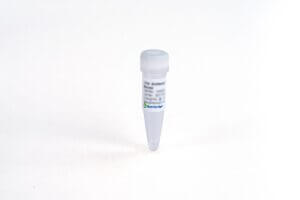
Procalcitonin (PCT) Antibody (PE9), mAb, Mouse
$1,276.50 Add to cart View Product DetailsPCT
is a 116 amino acid (aa) protein. It is comprised of three sections of a 57 aa
N-terminal PCT, a 32 aa calcitonin and a 21 aa katacalcin. Calcitonin is a
hormone, derived from PCT cleavage. PCT is a good diagnosis marker for
bacterial infection. Other diseases such as sepsis, inflammation, surgery, heat
shock, burn injuries and cardiogenic shock can also cause an increase of PCT
level in blood. -

Progesterone (5F2HC)
$2,302.88 Add to cart View Product DetailsThe
progesterone is a steroid hormone which is secreted by the female reproductive
systems. Its concentration is associated with the development and regression of
the corpus luteum. The progesterone is used in evaluation of ovulation status and
assessment of the luteal phase -

ProGRP Antibody (11B5), mAb, Mouse
$2,811.75 Add to cart View Product DetailsProgastrin-releasing peptide (ProGRP) is a stable
precursor of the gastrin releasing peptid. It is composed of GRP (residues
1–27), a cleavage site (residues 28–30), and a constant region (residues 31–98).
ProGRP is a tumor marker for the diagnosis and monitoring of small cell lung
cancer (SCLC). -

ProGRP Antibody (1C10), mAb, Mouse
$2,811.75 Add to cart View Product DetailsProgastrin-releasing peptide (ProGRP) is a stable
precursor of the gastrin releasing peptid. It is composed of GRP (residues
1–27), a cleavage site (residues 28–30), and a constant region (residues 31–98).
ProGRP is a tumor marker for the diagnosis and monitoring of small cell lung
cancer (SCLC). -

PSA (7H2), mAb, Mouse
$1,043.63 Add to cart View Product DetailsProstate specific antigen (PSA) is a serine protease produced by the prostate gland. In serum, it exists in different forms, cPSA, mainly including PSA-ACT (alpha-1-antichymotrypsin) and PSA-A2M (alpha-2-macroglobulin), fPSA (free PSA), etc. The blood level of PSA is increased in men with prostate cancer and it is considered as an indicator for prostate cancer, tumor recurrence and response to therapy.
-

PSA (8A12), mAb, Mouse
$1,043.63 Add to cart View Product DetailsProstate specific antigen (PSA) is a serine protease produced by the prostate gland. In serum, it exists in different forms, cPSA, mainly including PSA-ACT (alpha-1-antichymotrypsin) and PSA-A2M (alpha-2-macroglobulin), fPSA (free PSA), etc. The blood level of PSA is increased in men with prostate cancer and it is considered as an indicator for prostate cancer, tumor recurrence and response to therapy.
-

PTH (8H4HC)
$3,191.25 Add to cart View Product Detailsbeta test product of PTH Antibody (8H4HC)
-

PTH (NT7HC)
$3,191.25 Add to cart View Product Detailsbeta test product of PTH Antibody (NT7HC)
-

PTH Antibody (M18-3), mAb, Mouse
$3,191.25 Add to cart View Product DetailsParathyroid
hormone (PTH) is synthesized by the parathyroid glands and secreted into the
blood stream. Intact PTH is a single polypeptide containing 84 amino acids.
PTH, which plays an important role in maintaining calcium homeostasis, is a
useful biomarker in the diagnosis of calcium related disorders. -

PTH Antibody (NT7M), mAb, Mouse
$3,191.25 Add to cart View Product DetailsParathyroid
hormone (PTH) is synthesized by the parathyroid glands and secreted into the
blood stream. Intact PTH is a single polypeptide containing 84 amino acids.
PTH, which plays an important role in maintaining calcium homeostasis, is a
useful biomarker in the diagnosis of calcium related disorders. -

Rapamycin
$109.14 Add to cart View Product DetailsRapamycin
-

Recombinant PIVKA II Antigen
$8,098.88 Add to cart View Product DetailsProtein Induced by Vitamin K Absence or Antagonist-II (PIVKA-II), also known as Des-γ-carboxy-prothrombin (DCP), is an abnormal form of prothrombin. Normally, the prothrombin’s 10 glutamic acid residues (Glu) in the γ-carboxyglutamic acid (Gla) domain at positions 6, 7, 14, 16, 19, 20,25, 26, 29 and 32 are γ-carboxylated to Gla by vitamin-K dependent γ- glutamyl carboxylase in the liver and then secreted into plasma. In patients with hepatocellular carcinoma (HCC), γ-carboxylation of prothrombin is impaired so that PIVKA-II is formed instead of prothrombin. PIVKA-II is considered as is an efficient biomarker specific for HCC.
-

Riluzole
$120.82 Add to cart View Product DetailsRiluzole
-

S100 (2AC), mAb, Mouse
$1,371.38 Add to cart View Product DetailsS100 protein family contains variety of members such as ββ homodimer and αβ heterodimer. It is a useful marker for monitoring brain damage and detecting secondary neurological injuries. The concentration of S100 A8/A9 hetero complex increases in blood when special diseases take places, such as rheumatoid arthritis, cystic fibrosis, multiple scerlosis, and HIV infections. S100A8/A9 protein is a potential serum marker for diagnosis of pancreatic ductal adenocarcinoma (PDAC), intraductal papillary mucinous neoplasm (IPMN) or chronic pancreatitis (CP).
-

S100 (2BD1), mAb, Mouse
$1,371.38 Add to cart View Product DetailsS100 protein family contains variety of members such as ββ homodimer and αβ heterodimer. It is a useful marker for monitoring brain damage and detecting secondary neurological injuries. The concentration of S100 A8/A9 hetero complex increases in blood when special diseases take places, such as rheumatoid arthritis, cystic fibrosis, multiple scerlosis, and HIV infections. S100A8/A9 protein is a potential serum marker for diagnosis of pancreatic ductal adenocarcinoma (PDAC), intraductal papillary mucinous neoplasm (IPMN) or chronic pancreatitis (CP)
-

S100 (beta-beta) (B7B), mAb, Mouse
$1,371.38 Add to cart View Product DetailsS100 protein family contains variety of members such as ββ homodimer and αβ heterodimer. It is a useful marker for monitoring brain damage and detecting secondary neurological injuries. The concentration of S100 A8/A9 hetero complex increases in blood when special diseases take places, such as rheumatoid arthritis, cystic fibrosis, multiple scerlosis, and HIV infections. S100A8/A9 protein is a potential serum marker for diagnosis of pancreatic ductal adenocarcinoma (PDAC), intraductal papillary mucinous neoplasm (IPMN) or chronic pancreatitis (CP).
-

SAA (6F9), mAb, Mouse
$1,043.63 Add to cart View Product DetailsSerum Amyloid A (SAA) is an acute-phase protein. The concentration of SAA in blood increases rapidly when tissue damage or inflammation occurs. It is considered as an early biomarker for the diagnosis of many inflammatory diseases. SAA can also be used as an important indicator of infection.
-

SAA (8C7), mAb, Mouse
$1,043.63 Add to cart View Product DetailsSerum Amyloid A (SAA) is an acute-phase protein. The concentration of SAA in blood increases rapidly when tissue damage or inflammation occurs. It is considered as an early biomarker for the diagnosis of many inflammatory diseases. SAA can also be used as an important indicator of infection.
-

SAA (ML95), mAb, Mouse
$1,043.63 Add to cart View Product DetailsSerum Amyloid A (SAA) is an acute-phase protein. The concentration of SAA in blood increases rapidly when tissue damage or inflammation occurs. It is considered as an early biomarker for the diagnosis of many inflammatory diseases. SAA can also be used as an important indicator of infection.
